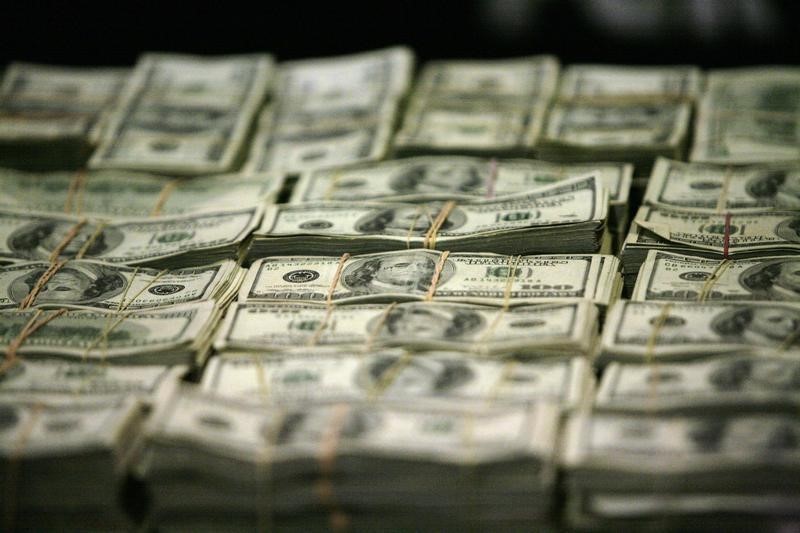Investing.com - The dollar pulled back from one-week highs against other major currencies on Wednesday, as the euro erased earlier losses, although the greenback remained supported by strong U.S. housing sector data and ahead of the minutes of the Federal Reserve’s latest policy meeting.
EUR/USD was at 1.0535, off a six-week trough of 1.0494 hit earlier in the day.
The euro bounced off session lows after French Centrist François Bayrou said he would not be running in the upcoming Presidential election, easing local political uncertainties.
The U.S. National Association of Realtors said that existing home sales jumped 3.3% in January to 5.69 million units from 5.51 million units in the previous month. Analysts had expected an increase of 1.1% to 5.54 million units.
The greenback also remained supported after Cleveland Fed President Loretta Mester said late Monday that she would be “comfortable” raising interest rates at this point as inflation pressures pick up.
The comments came after Fed Chair Janet Yellen said last week that a rate increase would be appropriate at one of the Fed’s forthcoming meetings.
Elsewhere, GBP/USD edged down 0.16% to 1.2451 after the U.K. Office for National Statistics said that gross domestic product expanded by 0.7% in the fourth quarter, compared to expectations for an unrevised of 0.6%.
Year-over-year however, the U.K. economy grew 2.0% in the three months ended December 31, missing expectations for it to remain unrevised at 2.2%.
USD/JPY dropped 0.44% to 113.17, while USD/CHF gained 0.42% to trade at 1.0137.
The Australian dollar edged higher, with AUD/USD up 0.10% at 0.7683, while NZD/USD held steady at 0.7157.
The Australian Bureau of Statistics earlier reported that construction work done fell 0.2% in the fourth quarter, compared to expectations for a 0.3% rise.
Data also showed that the wage price index increased by 0.5% in the last quarter, in line with expectations.
Meanwhile, USD/CAD rose 0.30% to trade at 1.3185, the highest since February 7.
Statistics Canada reported on Wednesday that retail sales fell 0.5% in December, compared to expectations for a 0.1% rise.
Core retail sales, which exclude automobiles, slipped 0.3% in December, confounding expectations for an increase of 0.6%.
The U.S. dollar index, which measures the greenback’s strength against a trade-weighted basket of six major currencies, was steady at 101.50, off one-week highs of 101.71 hit earlier in the session.
